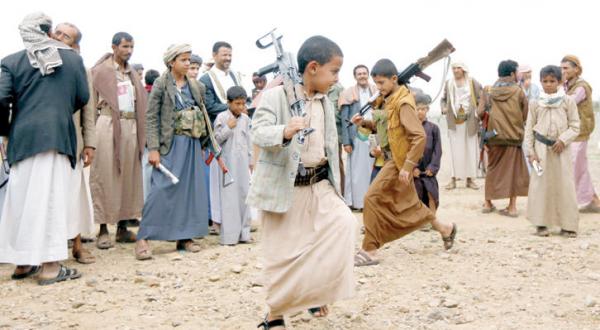The Independent National Yemeni Commission of Inquiry into alleged human rights violations recorded more than 9,817 alleged violations in various regions of Yemen from March up until now. According to the Commission, the violations included 3,054 cases of civilians being killed, amongst them 129 children and 102 women. In addition to this, 3,906 people were wounded as a result of armed conflict during the period from March 2015 until the 30th of July 2016. The Commission is monitoring and investigating 450 cases of extrajudicial killings and 387 cases relating to the recruitment of child soldiers.
The Commission explained that it is also investigating 358 cases of arbitrary arrests and enforced disappearances during the period of war (2015 to 2016), in addition to 81 cases of planting mines in the various provinces of Yemen. It is also investigating the bombing of 143 homes in a number of provinces.
The head of the Commission Judge Qahir Mustafa Ali expressed his disappointment in UNHCHR and said that the Commission’s relationship with the UNHCHR is limited to letters of public questions posed and does not involve the technical and advisory competence that it was relying on from the UNHCHR. However, he made amends by saying “The relationship with the UNHCHR is good and we continue to communicate with them”.
During the United Nations Human Rights Council’s thirtieth session that was held in Geneva in September 2015, it decided to establish the above mentioned commission and requested that the UN High commissioner for Human Rights (UNHCHR) provide specialist assistance to the investigative committee. The commission said that “The UNHCHR did not provide any kind of specialist and technical support according to the decisions of the UN Human Rights Council and merely sent letters that sometimes included questions that had nothing to do with specialist and technical support. Despite this, the Commission is keen to cooperate with the UNHCHR and provide written responses to those questions according to what the decision to establish the Commission permits, its regulations and the national laws in effect”.
